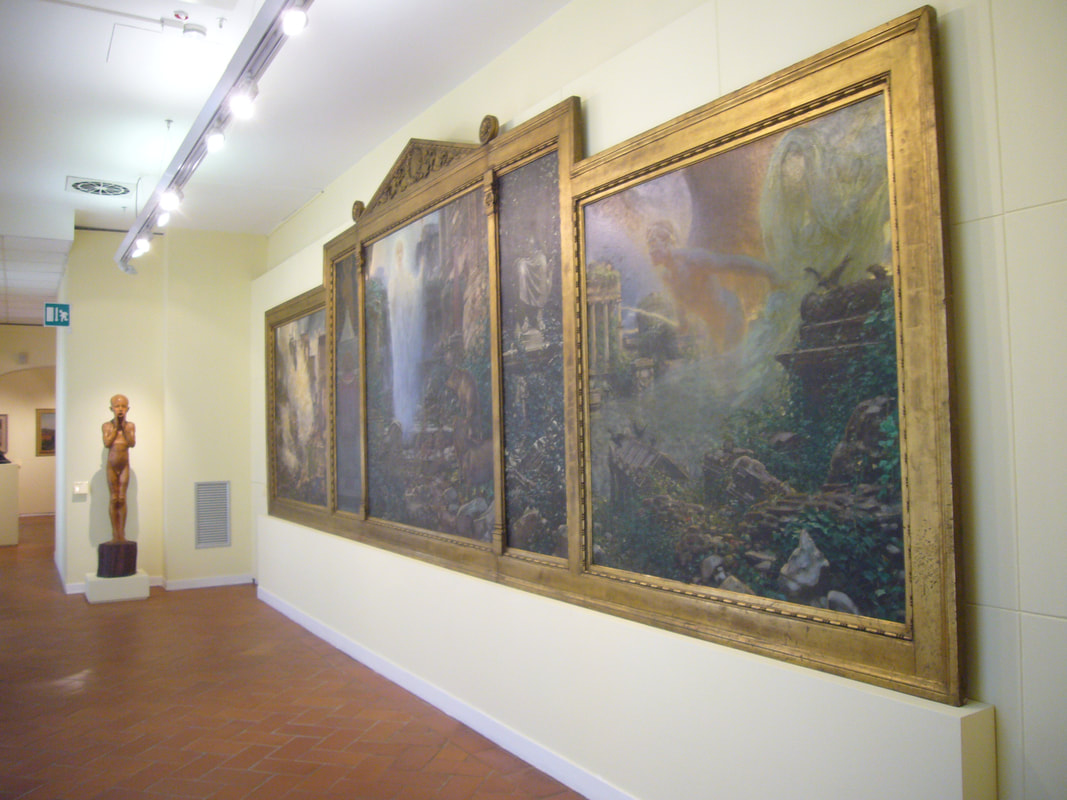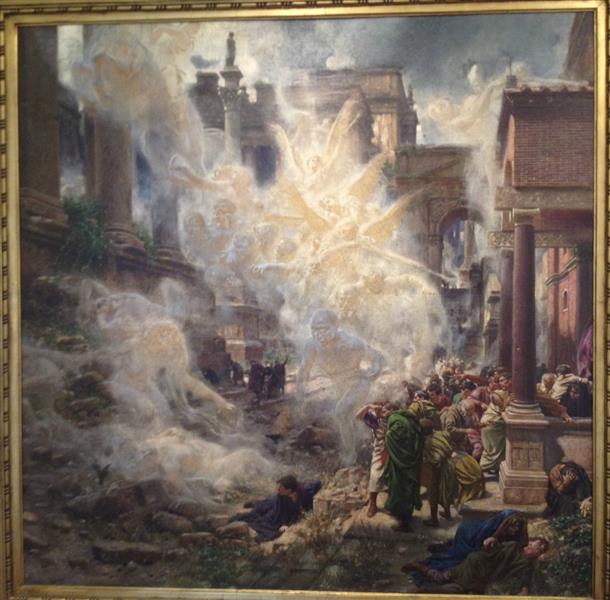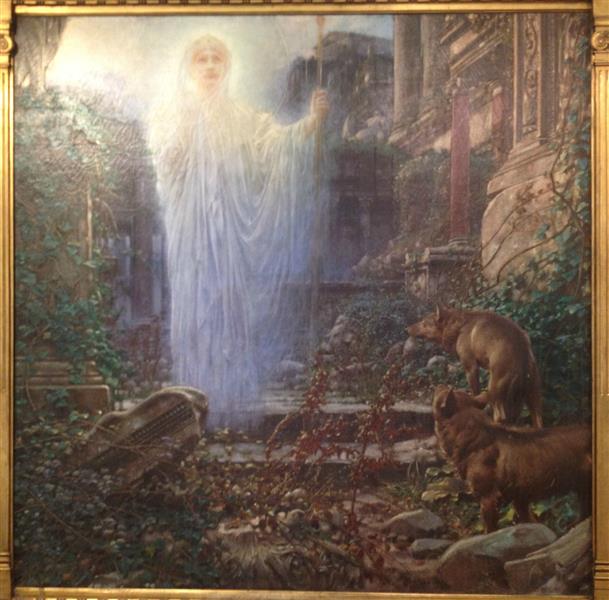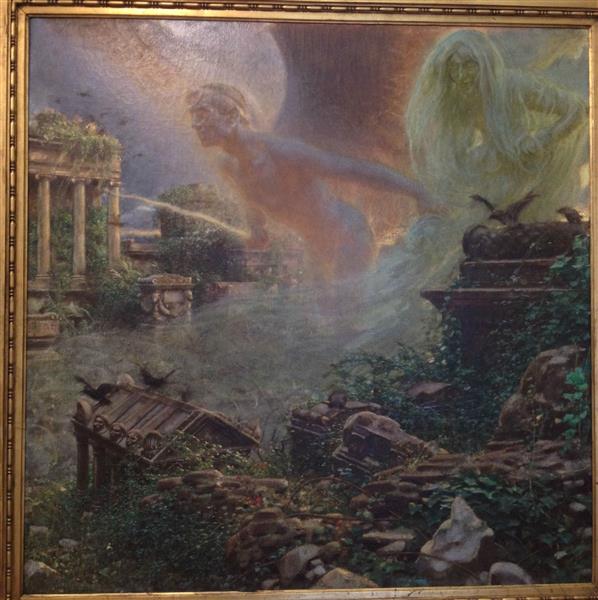
It is no coincidence that Solitary Rome, the third and largest painting in the arrangement, is the centerpiece of Hirémy's polyptych. At its most fundamental level, it presents the crux (pun intended) of the allegory. The scene presents the "resurrected" God of Rome bathed in the light of the new faith. He floats above the decaying and overgrown ruins of his once magnificent city seemingly oblivious to the two wolves (perhaps an allusion to Remus and Romulus) that symbolically hark back to the collapsed pagan empire's mythic beginnings.

The final panel, War and Plague Devastates The Provinces, depicts war and plague as giant ghostly human forms moving mercilessly through the provincial empire in the West. The male figure allegorizing war firmly clasps the female form personifying plague and drags her along behind him as he purposefully strides forward, his misty presence affecting everything it touches. The scene is bathed in mystical colors and light, but unlike the first panel, the final painting in the polyptych contains no other human forms, only a deserted and devastated landscape populated only by what appear to be ravens - a clear symbol of death if there ever was one.
Though the process for the latter era began much earlier, say the Renaissance or the French Revolution, it would not be a stretch to pin the time of the actual collapse of Western Christianity - of Christianity as a driving moral, cultural, and spiritual force at around the time of the Great War. In this sense, Hirémy's symbolic allegory of the passing of worldly glory with the collapse of Rome is a prophecy of the devastation Europe would face in his own lifetime, with one key difference. Sic Transit depicts the passing of the worldly glory that was Rome as it succumbed to the emergence of Christian civilization - an otherworldly glory - that replaced it. But what kind of civilization replaced Christianity in the West after the outbreak of the the Great War?
Broadly speaking, the emergent Christian civilization Hirémy depicts dominated Europe for a millenium in much the same manner its pagan predecessor dominated the continent for a thousand years, yet by the sixteenth-century, that Christian dominance began to splinter and, as the centuries passed, eventually fade. Rather than interpret these developments as an indication of needed religious evolution, Christians began to drift away from their faith and instead embraced worldly glory once more.
The Christian civilization Hirémy was born into in the nineteenth century was already a shadow of its former self by the time the artist began his career in decadent Vienna. Corrupted and stagnant, Europe dove headlong into a war that succeeded in further weakening whatever strands of true Christian faith remained in the West. Though he was a Jew by birth, Hirémy must have sensed the inevitable decline of the Christian civilization surrounding him, which undoubtedly led him to draw parallels with the collapse of Rome.
Though many would argue otherwise, I myself would be hard-pressed to label the twentieth century in the West as belonging to the Christian era. No, as far as I'm concerned, the twentieth century was all about worldly glory of the worst possible kind - an atheistic and material worldly glory stripped of religion. The void Rome left when it wound down and fell apart was filled with the spiritual light and dynamism of Christianity. That spiritual light and dynamism flickered out in Hirémy's lifetime. Since then we have been living in a fundamentally secular civilization devoted to godlessness and materialism based on individual rights and liberties.
This civilization is now experiencing a sic transit of its own. Like Rome before it, whatever worldly glory this selfish, atheistic, materialist civilization of ours possesses is ready to pass. Unlike Rome, Christianity is unlikely to fill the void this passing leaves in its wake. Instead, we are likely to experience an era in which both atheism and materialism continue to exist, made darker and denser by the complete obliteration of the individual rights and liberties our dying civilization had once worshipped as deities.






 RSS Feed
RSS Feed

